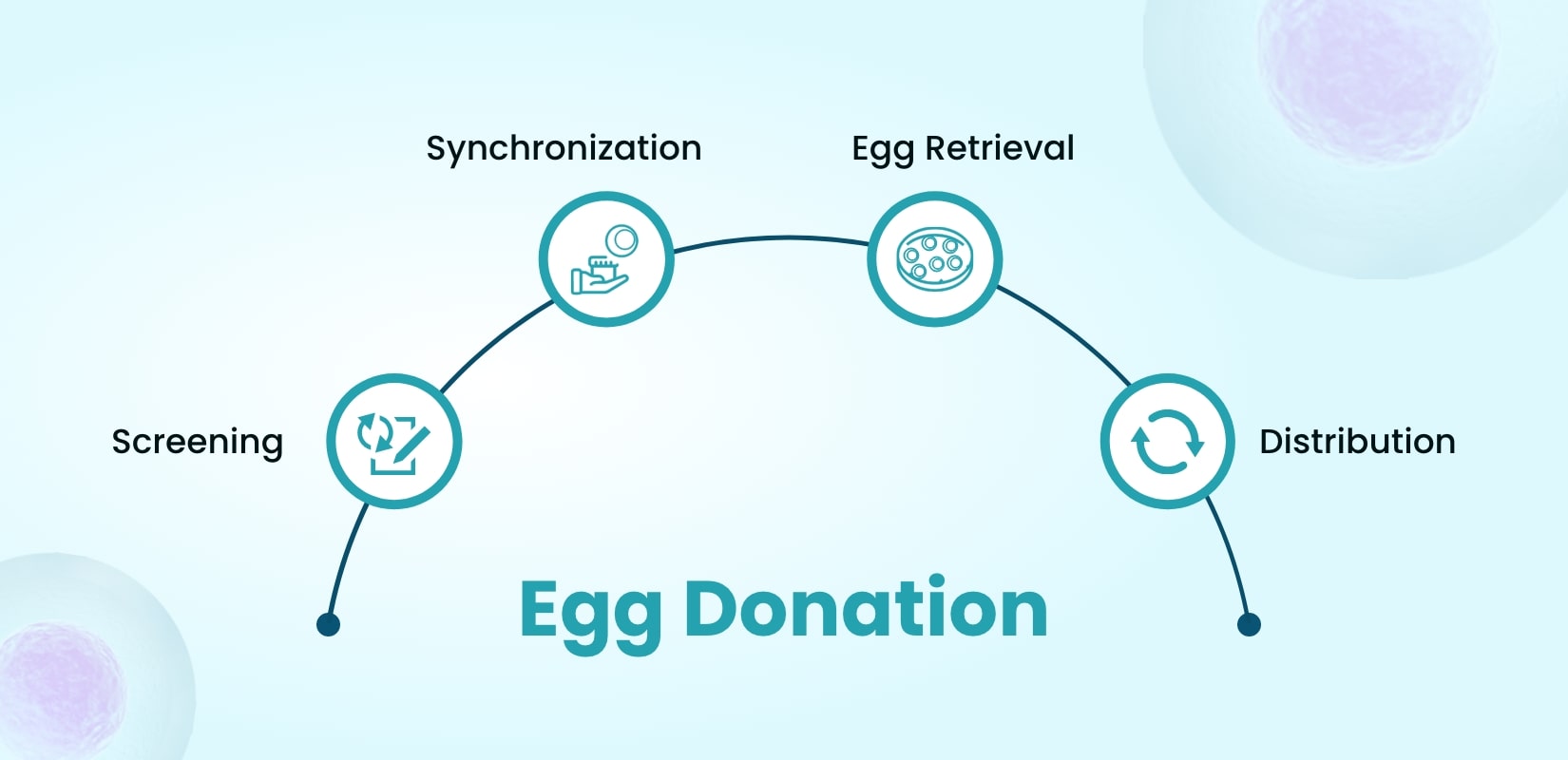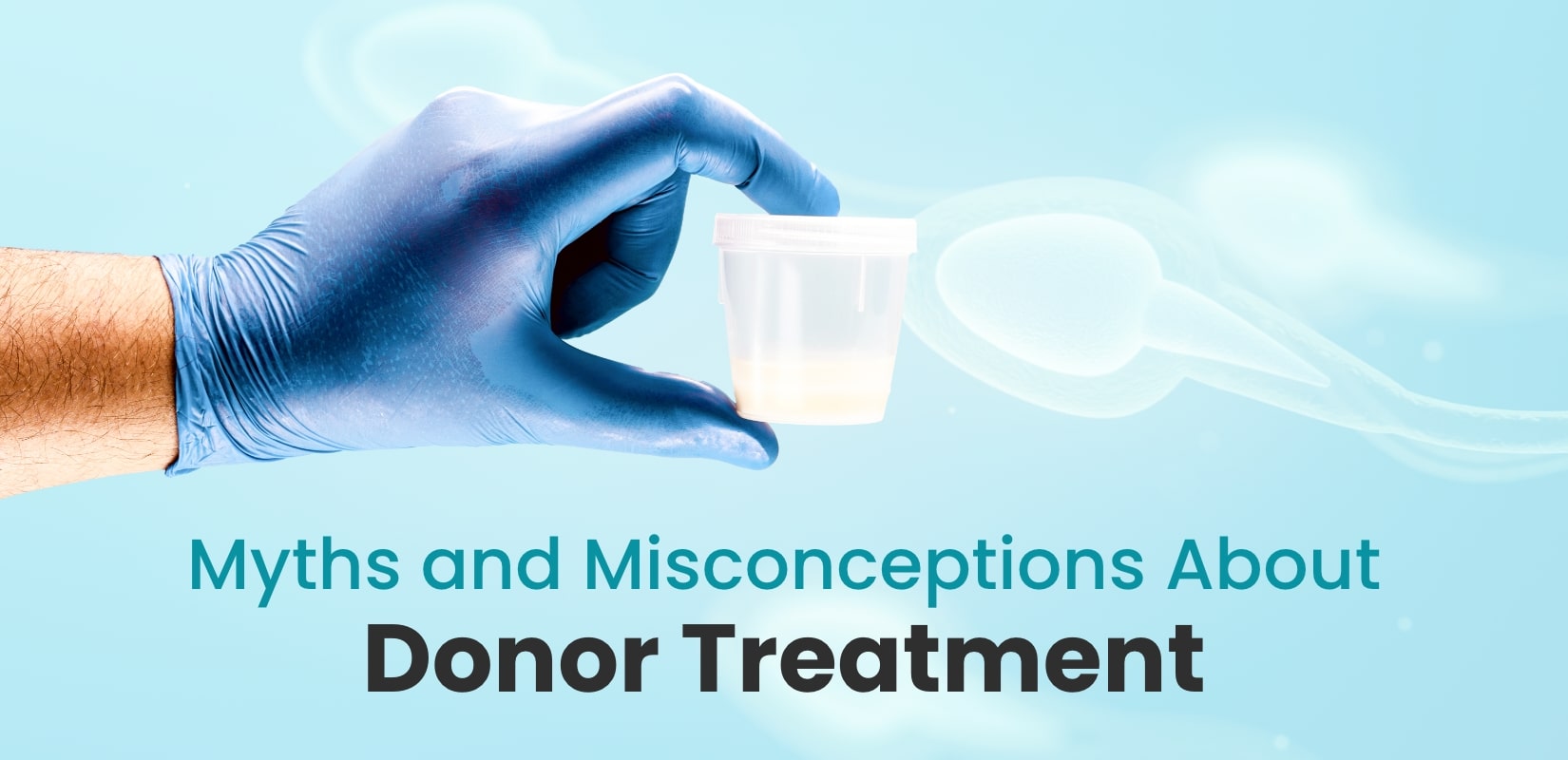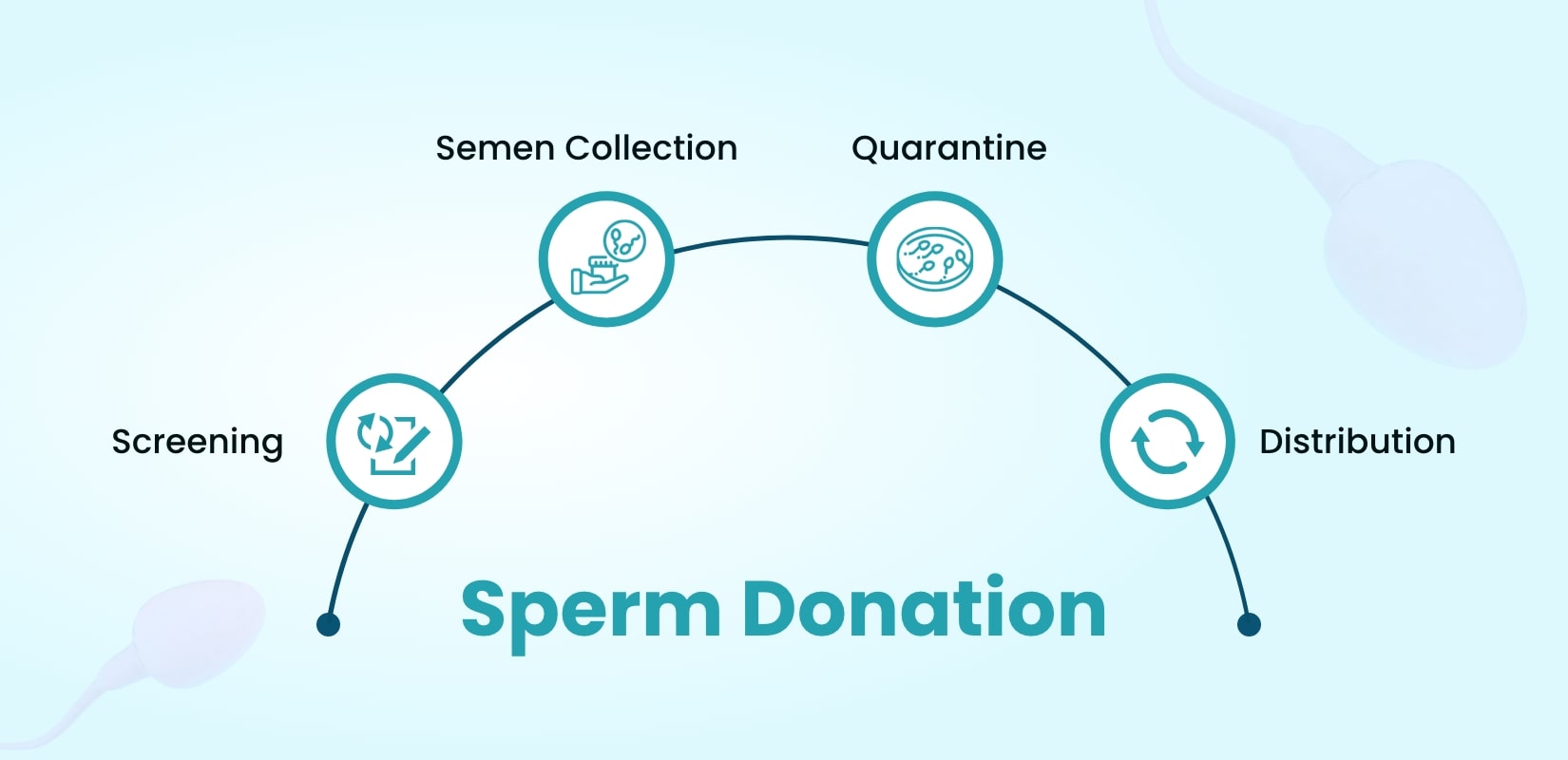Starting a family without complications is a dream for every couple, but not every try is successful. Thanks to medical advancements that made it possible for couples to accomplish their dreams. But as they say that we live in an age of falsification and misconceptions where people have a tendency to believe in anything they hear or read anywhere or even in WhatsApp forwards and never seek expert consultation from trusted authorities.
There are multiple fertility treatments available for couples seeking to start their family. Donor treatment is the procedure considered the last option after the failure of IUI or IVF. But as they say, with the solutions there arise multiple speculations associated with egg donation or sperm donation. While reading this blog, you will get your answers to the questions that have arisen after listening to those false statements. Trust us, after reading this it will be clear to make the right decision for you to choose donor treatment.
What to expect during donor treatment?
Before getting started with bursting the myths and conceptions associated with donor treatment, let’s have a look at the procedure and what you can expect while visiting a fertility expert in Hyderabad at Juhi Fertility Clinic.
After knowing the right cause behind the failure of conceiving, our trusted specialist may recommend you choose donor treatment for the best results. The donor treatment process can vary depending on whether you are looking for a treatment option for the donation of eggs or sperm. Here's a brief overview of the general procedure for each:
Egg Donation:

- Step 1: Screening: The first step in the egg donation process is screening. Here, you will undergo a medical and psychological evaluation, as well as testing for infectious diseases and genetic conditions. The donor will also be asked about their family medical history and personal lifestyle habits. If everything seems good to go, then the fertility expert will proceed to conduct the donor treatment.
- Step 2: Synchronization: After deciding on the donor, our fertility experts will begin taking medications to synchronize their menstrual cycle with the recipients. This ensures that the eggs will be ready for retrieval at the optimal time.
- Step 3: Egg Retrieval: The egg retrieval process is typically done under sedation and involves a doctor using a transvaginal ultrasound to guide a needle into each ovary to extract the eggs.
- Step 4: Recovery: After the procedure, the donor will be monitored for a short time to make sure they are recovering well. At this stage, they may experience some cramping, bloating, or spotting.
Sperm Donation:
- Step 1: Screening: Similar to egg donation, sperm donors must undergo a screening process that includes a medical evaluation and testing for infectious diseases.
- Step 2: Semen Collection: Sperm donors will provide semen samples, usually at a sperm bank or clinic, through masturbation into a sterile cup. The samples will be tested for quality and frozen for later use.
- Step 3: Quarantine: This process requires ample time to ensure safety. The sperm samples will be quarantined for a period of time, typically 6 months, to confirm that the donor does not develop any infections or diseases that could be transmitted through the sperm.
- Step 4: Distribution: After the quarantine period, the sperm samples will be made available for distribution to recipients who have selected the donor based on their personal preferences and medical history.
Top 7 Misconceptions About Donor Treatment:
There are several myths and misconceptions surrounding donor treatment that you must have heard and this can lead to creating confusion and anxiety for individuals considering donor treatment as a suitable option to start their family. Here are some common myths related to donor treatment:
- Myth #1: Donors are just in it for the money: This is a common misconception that assumes donors are only motivated by financial compensation. While compensation is provided to egg and sperm donors, most donors are also driven by a desire to help others achieve their dream of starting a family.
- Myth #2: Donors are genetically related to the recipient's child: Donor eggs or sperm are used to create a pregnancy, but the child is not genetically related to the recipient's partner or the donor. The donor's genetic material is only used to fertilize the recipient's partner's or donor's egg or sperm. All the flesh, blood, and cells then develop in the womb by themselves and are totally unique to their kind. The mother carrying the child helps develop the cells and is hence called the ‘biological mother’ to the child. The child is not genetically associated with the recipient’s child.
- Myth #3: Donors are not healthy or have medical problems: Egg and sperm donors undergo extensive medical and psychological screenings to ensure they are healthy and meet specific eligibility criteria. The screening process includes physical exams, medical history reviews, genetic testing, and infectious disease testing. And hence after full assurance, the donor is selected and hence the chances of any medical problems are lesser in most cases, or else exceptions always exist.
- Myth #4: Donor-conceived children will have emotional or identity issues:Donor-conceived children are no more likely to experience emotional or identity issues than children conceived through natural means. Research has shown that having open and honest communication with children about their donor conception can help reduce any potential issues.
- Myth #5: Donor treatment is only for infertile couples:Donor treatment can be an option for any individual or couple who is unable to conceive naturally or with the assistance of fertility treatments. Donor treatment can also be used by individuals or couples who wish to avoid passing on genetic conditions or who are in same-sex relationships.
- Myth #6: Egg donation can cause infertility:Medical research indicates that a woman is born with millions of eggs and only a thousand eggs are used throughout her life. Hence, considering that egg donation can be a cause of infertility is a total misconception.
- Myth #7: A donor can donate unlimited times:As per the medical guidelines of reproductive medicine, a woman can only donate her eggs only 6 times despite the millions of numbers of eggs present in the womb. There might be some bloating or pain after the synchronization process but is temporary
Opting the donor treatment can be the best decision for you leading toward starting your family and fulfilling the dream of having a child. It can be a difficult journey while considering the option and hence you need expert advice who can provide you with the right consultation and answer all your concerns. At Juhi Fertility Clinic, we have fertility specialists who can guide you to the best outcomes and help you start your family. If you have any questions remained, just give us a call at +91 9573744646 and book a consultation at Juhi Fertility Clinic.
Leave a Reply
Your email address will not be published. Required fields are marked *


